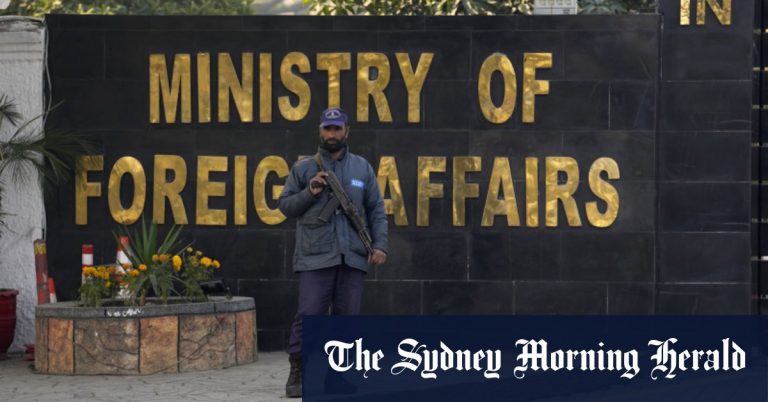He added, “The sole purpose of today's work is to pursue Pakistan's security and national interest, which is extremely important and cannot be compromised.”
She added that the country “will continue to take all necessary steps to maintain the safety and security of its people.”
The semi-official Tasnim news agency said Tehran had asked for an explanation. Iranian state television, quoting an unnamed official, said after the strike that Tehran strongly condemns the attack.
Pakistan 'crossed borders'
Pakistan's comments after the strikes indicate it wants to keep the dispute under control, but analysts have warned that it could spiral out of control.
Asfander Mir, a senior expert on South Asian security at the US Institute of Peace, told Reuters that Iran's motives for attacking Pakistan remain ambiguous, but in light of broader Iranian behavior in the region, they could escalate.
“What will cause concern in Tehran is that Pakistan has crossed the limits by striking inside Iranian territory, a threshold that even the United States and Israel have been careful not to cross.”
Several insurgent groups are active in Iran and Pakistan, including the Sunni separatist group Jaish al-Adl, which Tehran has targeted in its own attack. They all have a common goal, which is the independence of Balochistan for the Baloch ethnic regions of Afghanistan, Iran and Pakistan.

A Pakistani man reads the front page of a morning newspaper covering the Iranian strike at a kiosk in Islamabad, Pakistan, on Thursday.credit: AP
Pakistan's Balochistan province, as well as Iran's neighboring Sistan and Baluchestan province, have faced a low-level insurgency by Baloch nationalists for more than two decades.
download
Pakistan called its operation “Marg Bar Sarmachar”. In Iranian Persian, “marg bar” means “death” — a popular saying in Iran that since the 1979 Islamic Revolution has been used to refer to both the United States and Israel. In the local Balochi language, the word “sarmachar” means guerrilla warfare and is used by militants operating in the cross-border region.
Ali Reza Marhamati, deputy governor of Iran's Sistan and Baluchestan province, provided casualty figures for Thursday's raid in a phone interview, saying the dead included three women and four children. He did not immediately provide details.
HalVash, an advocacy group for the Baloch people, shared photos online that appear to show remnants of munitions used in the attack. She added that a number of homes were bombed in the city of Saravan in the Iranian province of Sistan and Baluchestan. Videos were published showing a destroyed mud building and smoke rising above the raid immediately afterwards.
This came a day after Pakistan recalled its ambassador to Tehran due to the strikes launched by Iran on Tuesday. Iran claimed that it targeted the bases of a militant Sunni separatist group. The attack sparked strong condemnation from Pakistan, which denounced the attack as a “flagrant violation” of its airspace and said it resulted in the death of two children.
The risk of escalation remains as the Iranian army is scheduled to begin a planned annual air defense exercise from the port of Chabahar near Pakistan across the south of the country into Iraq on Thursday. The exercises, State 1402, will include live fire from aircraft, drones and air defense systems.
Iran and Pakistan share a 900-kilometre border, which is largely lawless, through which smugglers and militants pass freely between the two countries. This route is also essential for global opium shipments coming from Afghanistan.
For both Iran and Pakistan, the cross-border attacks renew questions about the preparedness of their militaries, especially their radar and air defense systems.
For Pakistan, such systems are crucial, as tensions always remain at a low boiling point with India, its nuclear-armed rival. Pakistani equipment has long been deployed along the border, not on its border with Iran. For Iran, it relies on those systems against potential strikes by its main enemy, the United States.

